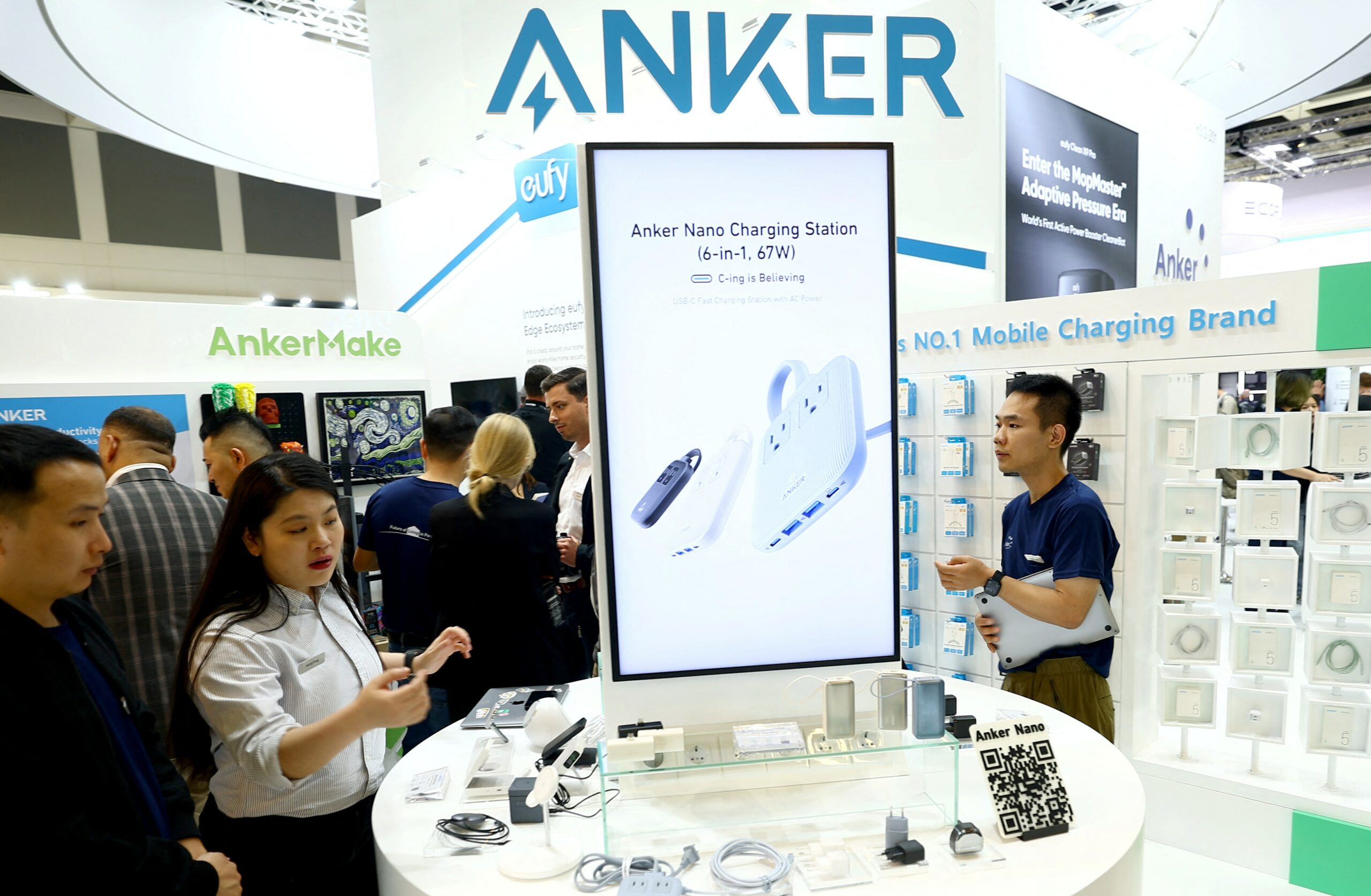China’s Anker Raises Prices on Amazon Amid Escalating US Tariffs
SHENZHEN, China, April 11 – Anker, one of Amazon’s largest sellers offering products ranging from power banks to phone cases, has increased prices on approximately a fifth of its products on the US platform since Thursday. This move signals that tariffs on Chinese goods are being passed on to US consumers.
According to data from e-commerce services provider SmartScout, 127 Anker products have seen an average price increase of 18% since last Thursday. The majority of these price hikes occurred after Monday, April 7, when US President Donald Trump imposed an additional 50% import duty on Chinese goods. US import tariffs on Chinese products now stand at 145%. In response, Beijing raised its tariff on US goods to 125% on Friday, escalating the trade war between the world’s top two economies.

Anker and Amazon did not immediately respond to requests for comment. The price increases follow warnings from China’s largest cross-border e-commerce association that many Chinese companies selling products on Amazon are preparing to either raise prices for the US market or exit the market altogether due to the tariffs.
“It’s the most concerted effort (to raise prices) I’ve seen across any brand,” said Scott Needham, founder of SmartScout. Anker, which employs 5,000 people and generates annual revenues of 22.17 billion yuan ($3 billion), has become a significant seller on Amazon since its founding in 2011 by a former Google software engineer.
During an investor call on Monday, Anker stated that it was able to raise prices due to its bargaining power and because its rivals, mainly Chinese companies, were under similar tariff pressure. However, the company did not provide specific details. Anker also announced plans to explore non-US markets, such as Europe and Southeast Asia.
The development comes as the trade tensions between the US and China continue to intensify, with both countries imposing higher tariffs on each other’s goods. The situation is likely to have significant implications for companies like Anker that rely heavily on cross-border e-commerce.


